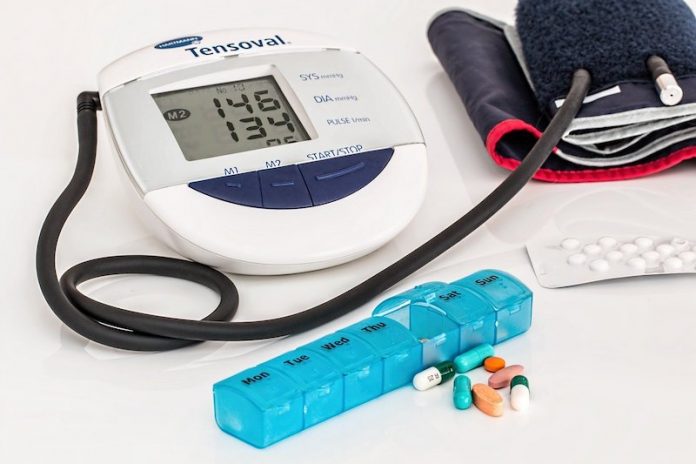
In a recent study published in the Journal of the American College of Cardiology, researchers found the reasons behind low levels of natriuretic peptides (NPs) in obese people.
NPs are beneficial hormones produced by the heart that are responsible for the regulation of blood pressure and the overall heart and metabolic health of humans.
This study also showed how the disturbance of an individual’s day-night, or diurnal, rhythm of these hormones contributes to poor heart health.
The study is from the University of Alabama at Birmingham. One author is Vibhu Parcha, M.D.
Obesity is linked to a higher risk of high blood pressure and poor heart outcomes.
High blood pressure at nighttime is seen commonly in obese individuals, which can contribute to outcomes such as stroke, heart failure, heart attack and cardiac death.
The reasons for the impairment of this day-night blood pressure rhythm are not well understood, but scientists believe that NPs could be a reason behind this.
All the hormones in the human body have a day-night rhythm. It has been hypothesized the NP hormones should also have this rhythm, but this had not yet been demonstrated in humans.
In the study, the team examined the 24-hour cycle of the NP hormones and compared it to the 24-hour cycle of blood pressure.
They found that NP hormones have a day-night rhythm with higher levels in the afternoon and lower levels at nighttime, which is similar to the 24-hour cycle of blood pressure.
However, they found that the relationship between NPs and blood pressure does not function the same way in obese individuals, leading to higher nighttime blood pressure, poor cardiovascular health and a higher risk of poor cardiovascular outcomes.
The low production of NPs combined with a relatively higher elimination of NPs from an obese person’s system leads to low circulating levels of these beneficial hormones, which may be the reason behind the NP deficiency.
The team says this is the first time researchers have seen that NPs, like other hormones, have a 24-hour rhythm.
These studies show a better understanding of NPs and of the reasoning behind the NP deficiency in obese individuals.
People now have an FDA-approved medication (LCZ696) that improves circulating NP levels. This medication is considered a first-line treatment for heart failure and may be used to increase NP levels.
This medication could specifically target NPs and blood pressure if given at the right time of day and could control hypertension with precision.
If you care about high blood pressure, please read studies about an important but ignored cause of high blood pressure and findings of this daily food may reduce your risks of diabetes and high blood pressure.
For more information about high blood pressure and your health, please see recent studies about these two teas may help reduce high blood pressure and results showing that this recommended high blood pressure drug may have dangerous side effects.
Copyright © 2021 Knowridge Science Report. All rights reserved.



